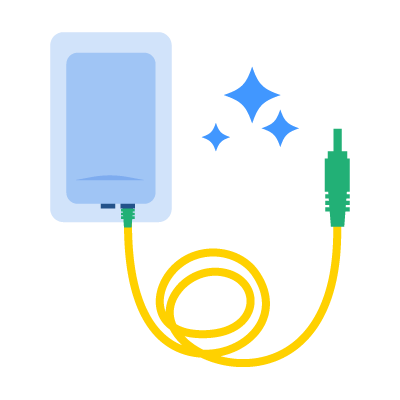Your Simple Guide To Fibre Broadband Services
It is great that most of our internet services and pricing of those services are largely regulated and offered at fixed prices under Singapore’s Next Generation Nationwide Broadband Network (NGNBN). If you’re new at shopping for internet and broadband plans in Singapore, we’re here to help with some tips and a quick guide below.

What Types Of Internet Connections Are Available?
Best Fibre Broadband Plans For Homes
| Broadband provider | Types of plans offered | Price range (per month) | No contract options | Speed rating* |
|---|---|---|---|---|
| Broadband providerSingtel 1 | Types of plans offered
| Price range (per month)$39.37 to $137.72 per month | No contract optionsNo | Speed rating*246.61 |
| Broadband providerViewQwest | Types of plans offered
| Price range (per month)$39.99 to $82.99 per month | No contract optionsNo | Speed rating*255.36 |
| Broadband providerStarhub | Types of plans offered
| Price range (per month)$29.90 to $99.90 per month | No contract optionsNo | Speed rating*204.07 |
| Broadband providerM1 | Types of plans offered
| Price range (per month)$30.18 to $63.90 per month | No contract optionsNo | Speed rating*198.78 |
| Broadband providerMyRepublic | Types of plans offered
| Price range (per month)$27.99 to $58.99 per month | No contract optionsYes | Speed rating*241.88 |
| Broadband provider *According to Ookla Speed Test Awards 2022 results. Each Speed Score for each provider is calculated using download speed value and upload speed value, and determined using a modified trimean methodology. The higher the Speed Score, the better it is. | Types of plans offered | No contract options | Speed rating* |
Installation And Other Fees For Broadband Plans
Here is a breakdown of the TPFI charges for different types of premises in Singapore:
- High-rise residential: $162
- Landed residential: $291.60
- Commercial: $324.20
There are some broadband providers that offer free TPFI for certain plans or if you sign a contract for a certain length of time. So it is always best to check with the specific provider before signing up for a plan.
The exact amount will depend on the type of work required. Here is a breakdown of the charges for different types of work:
- Relocation: $162 for HDB and private high-rise apartments, $291.60 for landed properties
- Repair: $162 for HDB and private high-rise apartments, $291.60 for landed properties
- Replacement: $162 for HDB and private high-rise apartments, $291.60 for landed properties
- Removal: $162 for HDB and private high-rise apartments, $291.60 for landed properties
This is an estimated range as the exact amount will really depend on the length of the cable run and the location of your premises. For instance, if the cable run is 20 meters long, the cost will be roughly between $8.64 and $77.60.
Factors which may affect the cost of additional fibre cable run charges include:
- The length of the cable run: The longer the cable run, the higher the cost.
- The location of the premises: The cost of running a cable through walls or ceilings is higher than running it along the floor.
- The type of premises: The cost of running a cable in a landed property is higher than running it in an HDB or condo.
Frequently Asked Questions
Where can I find the cheapest broadband plan for home use?
- Currently, MyRepublic’s 200Mbps (24 months) broadband plan is the cheapest among the 5 popular providers we’re comparing with.
What is an Internet Speed Score?
- According to Ookla, a Speed Score is a measure of each provider’s download and upload speed to rank network speed performance (80% of the final Speed Score is attributed to download speed and the remaining 20% to upload speed). The higher the Speed Score, the better it is.
How much does a home broadband plan cost?
- Considering MoneySmart’s round-up of the best broadband plans from the best 5 providers, ranging from 200Mbps to 10Gbps, the prices will vary according to the product offerings. It can cost from as low as $27.99 per month to over $100 per month.
Are there other costs besides the monthly broadband plan subscription fee?
- Yes. Usually there are other fees that will come with the broadband plan that you signed up for, and they include the termination point installation fee, relocation, repair, replacement and removal fees and Additional fibre cable run fees.
Should I get a broadband plan with a router?
- If you have an old and lousy router, and have been experiencing “network jams” that slows down your internet speed, It is time to get a broadband plan with a new router, because no matter how high your internet speed is, you will get nowhere without a router to direct your network for your devices. Thus, it’ll be wise to pick broadband plans that come with good routers.
Is a 2Gbps broadband plan better than a 1Gbps plan?
- Yes and no. This will depend on your needs. As every person requires a different amount of bandwidth and level of internet speed, the plan that will work for each person will differ as well. If you’re a heavy user, then a 2Gbps may work better for you. It’s better to figure out what and who is consuming how much bandwidth in your household so as to help determine the type of broadband plan that is best suited for you and/or your family.


